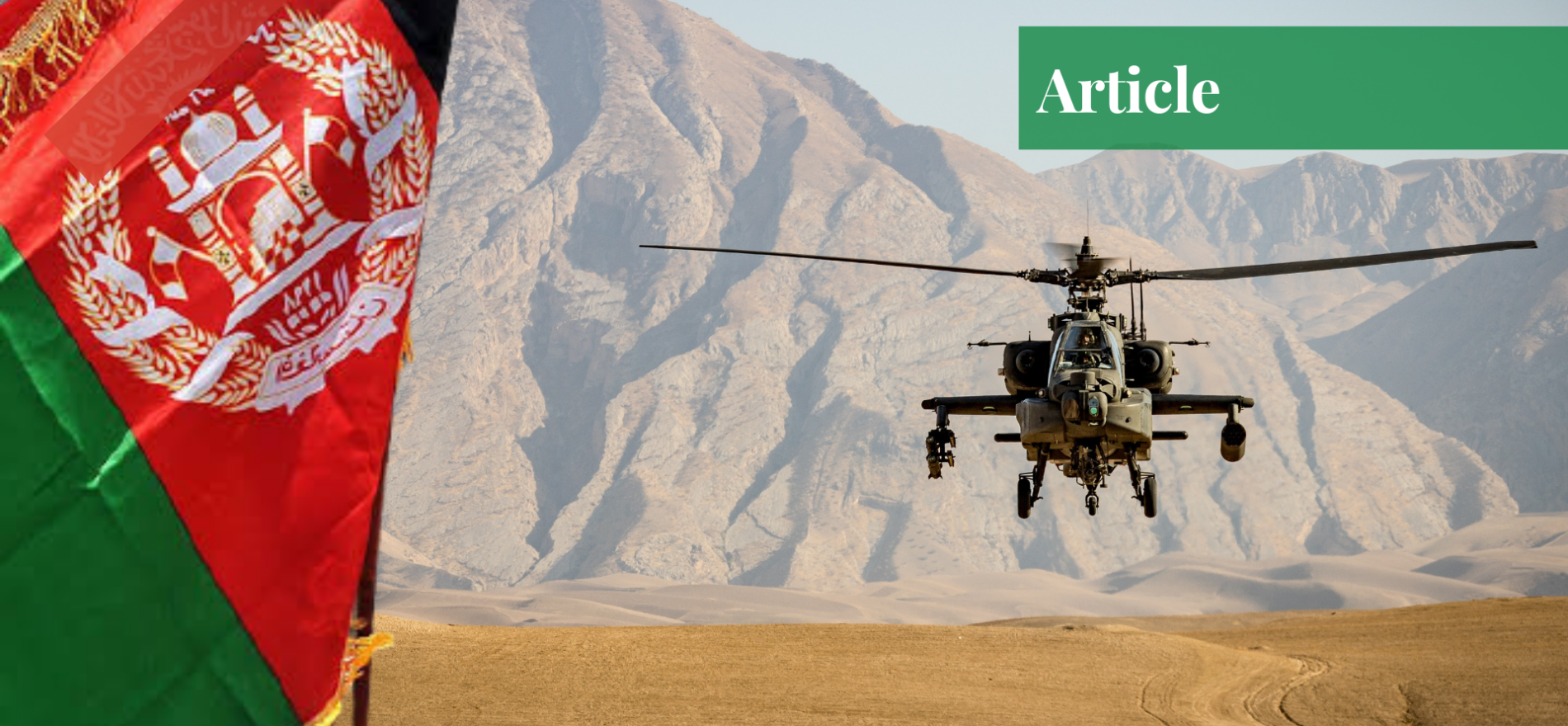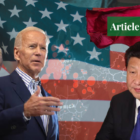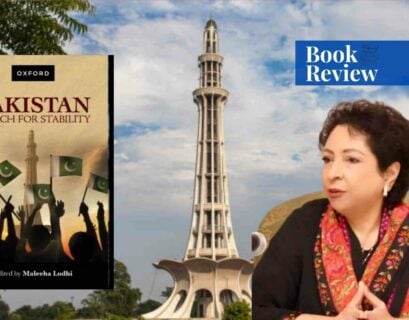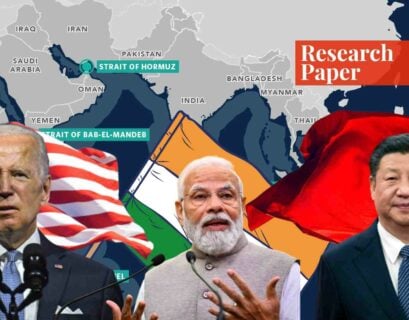Mr. Mairaj ul Hamid Nasri teaches at the Department of Political Science of the University of Malakand, Chakdara. He can be reached at [email protected].
The US Exit from Afghanistan
America has ended the physical presence of her forces in Afghanistan after fighting the longest-ever war in her history on July 04, 2021, before the previously announced date of withdrawal, i.e., September 11, 2021. The last remaining US troops in the state departed on August 30th. The motive behind this move of the Biden administration is not declassified yet, but the forces in Afghanistan have quickly rounded up their belongings and are in a hurry to leave the undefeated land forever. Nevertheless, the fate of suppressed Afghans is still in dismay because of the possibility of another civil war, and instability and chaos in Afghanistan.
Apart from leaving Afghanistan in a state of devastation, the objectives achieved until now are unclear and the haste in rounding up the luggage from the Afghan arena by the Americans is also vague. The regional actors and local stakeholders are in a hurry to shape their respective designs for pursuing their vested interests on unfortunate Afghan land.
The question on part of the withdrawing American forces, that term themselves as champions of human rights and flag bearers of democratic ideals, is, whether they have fulfilled their responsibility of providing post-war justice to the Afghans or have they only fulfilled their malicious agenda on alien land? Now, once again, the unfortunate Afghans are destined to taste the bitterness of anarchy, chaos, and political instability.
Biden’s foreign policy move of withdrawing from Afghanistan contains many dimensions ranging from dealing with Russia on one front to China on another. Moreover, Biden has probably understood that competition in world politics has been shifted from a strategic front to an economic one. A military presence has little to add to this competition; rather, it concentrates on diplomatic strength and economic mobilization in the Afghan arena.
However, no matter what the motives may be, the reality is that even during the two-decades-long presence, the sole superpower – the United States – terribly failed to ensure enduring peace and stability and has left Afghanistan and the Afghans on the verge of another collapse and multi-organ failure at once. It will be unbearable for Afghans and the regional states this time.
The Taliban Takeover
The internal situations of Afghanistan clearly suggest that the American hasty withdrawal will have serious repercussions on the politics of Afghanistan in the near future. Ashraf Ghani-led Kabul regime no longer controls the country. Afghanistan is now completely left at the mercy of the Afghan Taliban. The Taliban claim that in the month of April alone, they have been able to recruit 1,127 administrative staff from Ashraf Ghani and the recruitment process is gaining momentum since then.
The Taliban field forces conquered province after province. Reportedly, the defense forces had gotten involved in selling their armaments to the Taliban, and on many occasions, they provided a safe way to the Taliban to control their intended places and surrendered. Moreover, the local quislings were worried about the sudden departure of their lords and leaving them shelterless and at the mercy of the pitiless Taliban, and hence, many gave up their strongholds to the Taliban.
Public opinion surveys suggest that the Taliban are favored over other militia groups or warlords either due to fear or owing to their changed status on governance and social issues. This whole situation is alarming. Furthermore, the Taliban’s on-ground position is gaining momentum with each passing day. They have a registered number of hundred thousand trained and well-equipped fighters, which definitely is a sign of their credibility to wage any type of adventure in the vacuum created by American forces.
Setting the Stage for a Civil War in Afghanistan
The recognition won by the Taliban in the global community, after the peace agreement with the Trump administration in February 2020, has added to their morale in gaining power in Afghanistan soon after the US exit. Nonetheless, it will not be easy for them as the rival forces—the Islamic State of Khurasan Province (ISKP), and the National Resistance Front (NRF)—will resist the Taliban from maintaining their rule which will lead to another civil war in Afghanistan.
This unfortunate civil war will be bloodier and more fatal than that of the 1990s if it’s not stopped by the well-wishers and stakeholders in Afghanistan. The neighboring countries and regional players will come into play here once again. The role and status of regional actors in Afghanistan in the end game scenario cannot be negated at any cost. The USA has tried to gain the support of the regional players in the form of airbases, to keep itself intact with the Afghan scenario, which has been strongly condemned by the Taliban.
America’s Failure in Afghanistan
In the aforementioned facts, the reality that exists is that if the United States had left Afghanistan in a situation of relative political stability and economically viable condition, then the current situations of chaos, anarchy, and blame game would have been lessened at most.
If the American-supported NGOs, instead of working on their vested agendas, had worked on the ground in true spirit for uplifting Afghans in every aspect, the situation would have been more favorable and face-saving for the US exit.
Moreover, if the seven thousand prisoners of the Taliban could have been freed by the Ghani administration and the Dr. Abdullah-led negotiating team had fulfilled its job of materializing and implementing the peace agreement with the Taliban in its letter and spirit, then the political front would have been more stable.
To sum up, the Americans have terribly failed to fulfill their moral, ethical, international humanitarian principles, and American democratic ideals. Thus, it has once again reminded the world of the US exit from Vietnam, which had left the Vietnamese to live a devastated and miserable life after the end of American occupation.
Jus post bellum demanded that before rounding up from Afghanistan, the political issues should have been resolved through negotiated settlement and materialize their peace agreement. The regional players should not be entangled in Afghanistan for their vested interests and instead, work on a uniform agenda for the reconstruction of Afghanistan on the pattern of reconstruction of Europe after World War II.
The locals should have been educated enough to develop their love for democracy, shun the culture of militancy, and strive for human rights in its true spirit. Although, apparently in papers, there seem some moves by the US-backed agencies, however, the ground realities are different; this is the reason why very little has changed even after two decades.
The principle of jus post bellum, in the American case, will be accepted as implemented if the Afghans work for democracy and don’t revert to civil war for maintaining the Kabul throne. The ground realities in Afghanistan suggest that the ethnic and political groups are very quickly lining up for another civil war and will definitely have impacts on the regional political scenario as well. In the end, common Afghans have to suffer.
If you want to submit your articles and/or research papers, please check the Submissions page.
The views and opinions expressed in this article/paper are the author’s own and do not necessarily reflect the editorial position of Paradigm Shift.


















